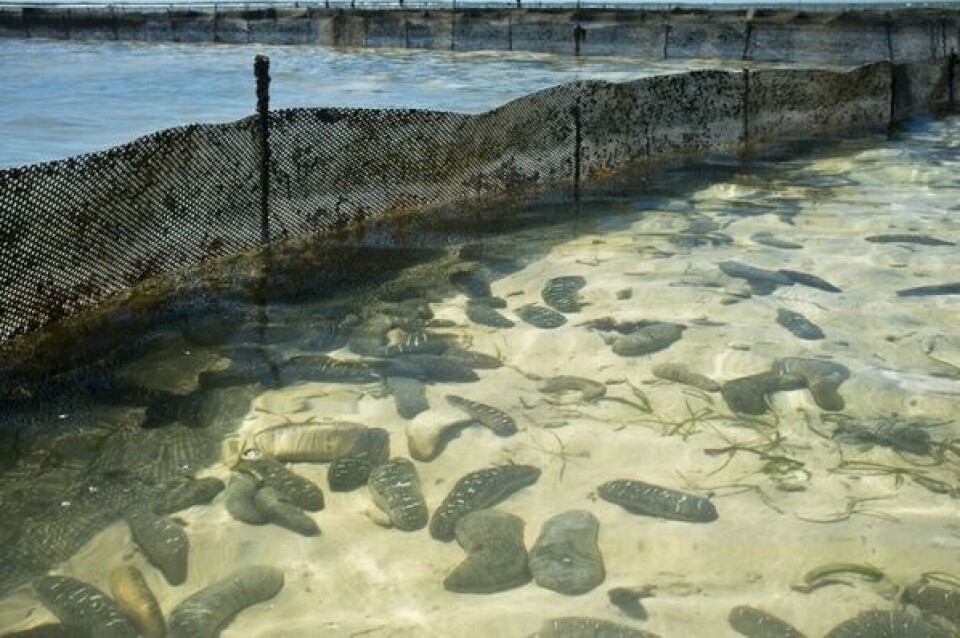
Cashing in on fish farm waste
A project that could ultimately lead to using fish farm waste to grow a valuable species of sea cucumber has been awarded $2.75 million in funding.
The money is being invested in Indian Ocean Trepang – a Madagascar-based company which is the exclusive global licensee for an innovative patent on in-vitro fertilization of Holothuria scabra – by Aqua-Spark, a Dutch investment fund focused exclusively on sustainable aquaculture.
Sea cucumbers are in high demand in Asian markets, where they’re considered a delicacy. They are also deposit-feeders that clean the environment without requiring feed, and can even be used in land-based marine farms to mitigate effluent. For Aqua-Spark, which has invested in land-based fish farms like Sogn Aqua (the Norwegian halibut producer) and Matorka (which grows Arctic char in Iceland), this application and potential to scale is of particular interest.
As a spokesperson for Aqua-Spark told Fish Farming Expert: “It’s not yet a common practice, but there is new research that the Holothuria scabra sea cucumber species grows well off of marine effluent. There have been promising pilots on shrimp farms in Vietnam and New Caledonia, for example.
“Additionally, one of Aqua-Spark’s board members along with an expert have been researching this, and they’ve seen great results with marine waste as feed for this species of sea cucumber.”
Native to Madagascar, the Holothuria scabra sea cucumber species has fallen victim to overfishing and has been listed as an endangered species by the International Union for Conservation. Aqua-Spark’s investment will be put towards establishing new sites – positioning the company to become the world’s leader in growing sea cucumbers. The long-term plan is for growing the echinoderms in multiple locations and countries. The company currently has 168 employees, with community projects in place that impact approximately 180 families.
“An investment in Indian Ocean Trepang is an investment in the future of sustainable fish farming and the survival of this species,” explained Mike Velings and Amy Novogratz, co-founders of Aqua-Spark.























































